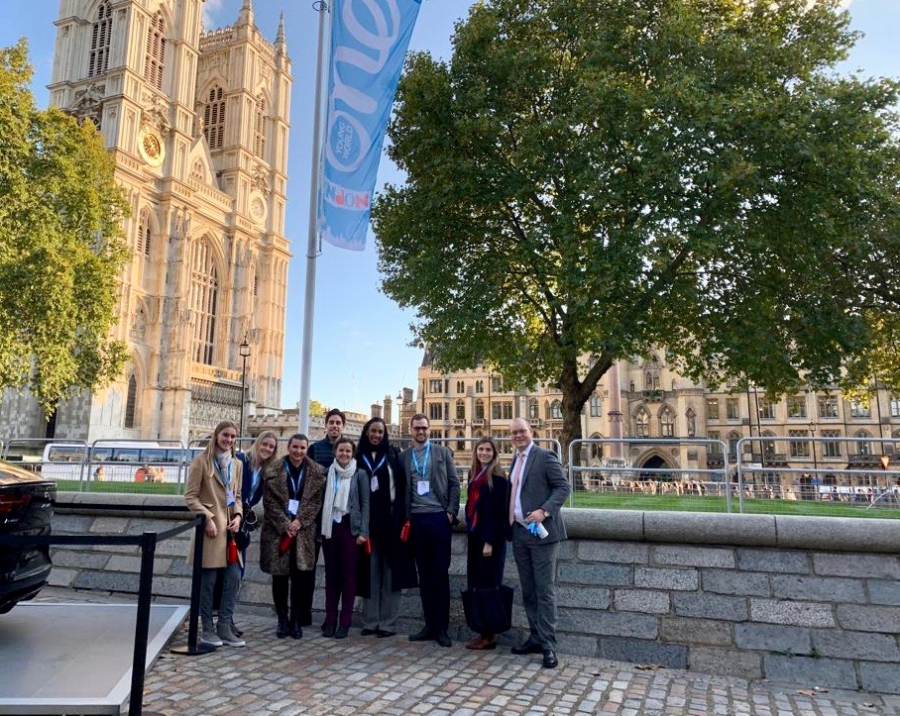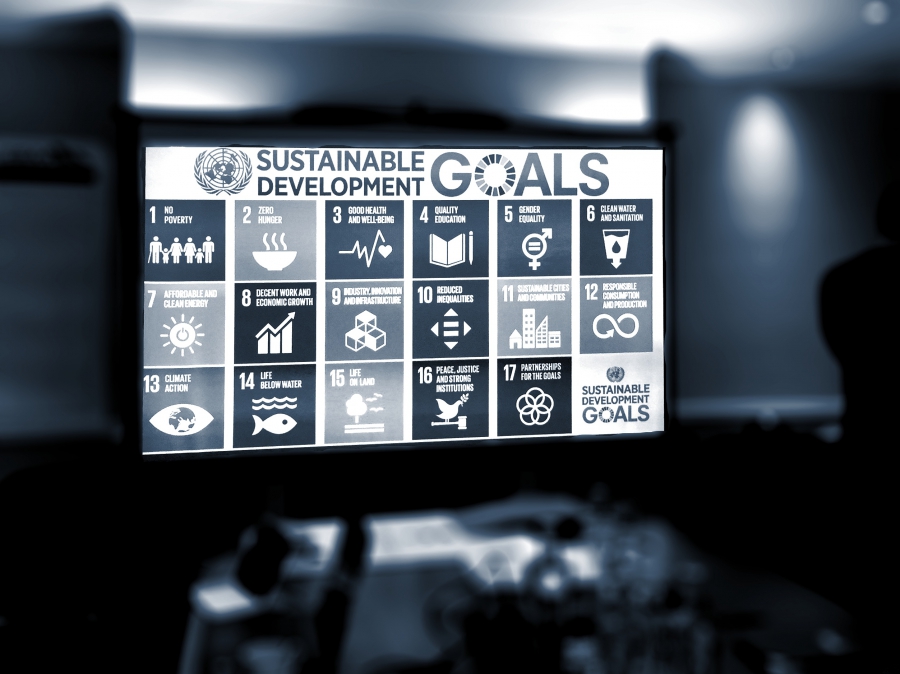There is a clear message for corporate culture: Doing good business and doing good is not only compatible but necessary. Companies should not set their focus on profit and expansion without equally promoting inclusivity, social and environmental issues.
Young Business Aviation Professionals working for a sustainable future for the Industry.
Last October the 10th One Young World summit was held in London. One young world is a global charity bringing together young leaders, change-maker, activists and cooperations. The attendees, over 2000 people from +190 counties, had one goal in common: to discuss social, humanitarian and environmental issues.
This year’s summit was oriented around the United Nation’s SDGs, 17 goals addressing the global challenges we face, including those related to poverty, inequality, climate change, environmental degradation, peace and justice. All to be achieved by 2030.
To achieve these goals of highest importance and urgency actions are required internationally and cross-sectoral and at all levels of influence.
Therefore, I count myself extremely fortunate for being sent to London as one of the 10 young professionals representing European business aviation.
The 4 days at the summit were an extremely inspiring and eye-opening experience. We had the chance to listen to many moving speeches and informative panels held by some of the most well know and influential personalities including Bob Dudley (BP group chief executive), J. K. Rowling (Bestseller Author) and Professor Muhammad Yunus (Economist / Nobel Prize winner).
During the workshops and discussion rounds, we had the unique opportunity to network with the other bright and open-minded young professionals and to talk the global issues.
One continuous believe that all shared was that we have to take action now, on a personal level, as a community or as a corporation. Nobody is too small to make a difference.
Furthermore, for today’s corporate culture there is a clear message: Doing good business and doing good is not only compatible but necessary. Companies can no longer set their focus on profit and expansion without equally promoting inclusivity, social and environmental issues. Only by doing business this way, businesses will be able to attract the new generation of customers, investors and employees.
Business aviation is an innovative and dynamic industry which, as many don’t necessarily think of, is not only about exclusivity and luxury but has other very important advantages. The industry helps persons and businesses to save a significant amount of time, to nourish business relations and to connect people in a highly international society.
However, we cannot ignore the negative aspect of our industry neither. Generally, business aviation has fallen into disrepute mainly due to its environmental impact.
There is a tendency for the industry to become greener, an indicator for this is the development of sustainable fueling alternatives (SAF) and more efficient aircraft models.
We say that this is only a beginning. However, for us, this is not enough. That is the reason we, the ten EBAA representatives, joint the S.T.A.R.S. project. STARS stands for Standards & Training for Aviation Responsibility and Sustainability. It is an industry-wide sustainability label providing guidance and rating for sustainability and social responsibility.
The new program, formed by young business aviation professionals, is raising awareness for those of today’s issues that are especially interrelated with the industry. Central aspects are for example the CO2 emission, food and cabin waste. STARS seeks not only to draw attention to those issues but to set goals and standards and share recommend practices for their achievement.
The set of guidance will be integrated into IS-BAO for aircraft operators and into IS-BAH for handling and FBO companies. Furthermore, the program will be available on a standalone basis for other business aviation players. The result will be an accreditation that can be achieved in three tiers. This label will be a transparent and universal indicator of the holder’s environmental and social performance.
STARS is currently working on defining the rating criteria as well as creating guidelines for recommended practices.
While the project is already backed up by the EBAA and the International Business Aviation Council (IBAC) we are looking to build further partnerships across the industry, so we can collectively benefit from the accomplishments.
AirGO was founded 20 years ago with the idea of running a private airline in a sustainable way. We are delighted that, today, business aviation industry in general has the tendency to become greener.


